Freemasonry teaches that a man must continually improve himself while living by high moral standards and serving others.
Its core principles of Brotherly Love, Relief, and Truth guide members in all areas of life.
In practice, Masonic teachings emphasize duties to oneself, to fellow Masons, to one’s own lodge, to family, to one’s work, and to the wider community.
The following lists outline commonly cited duties in each category, drawn from widely accepted Masonic tradition and practice.
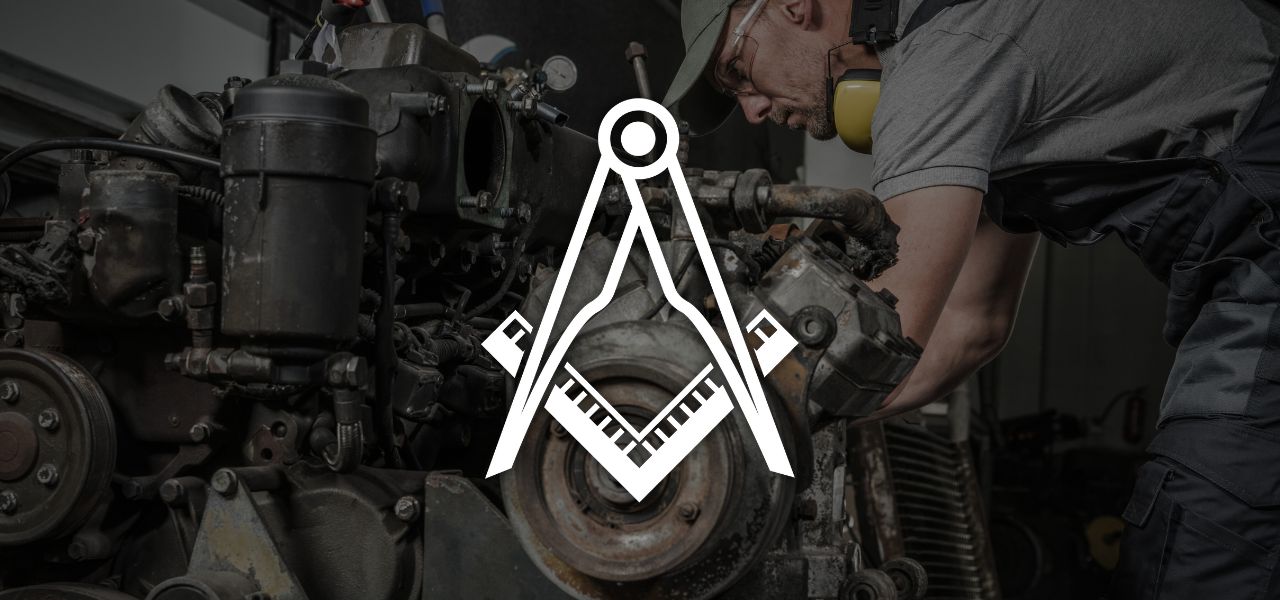
Duties to Oneself
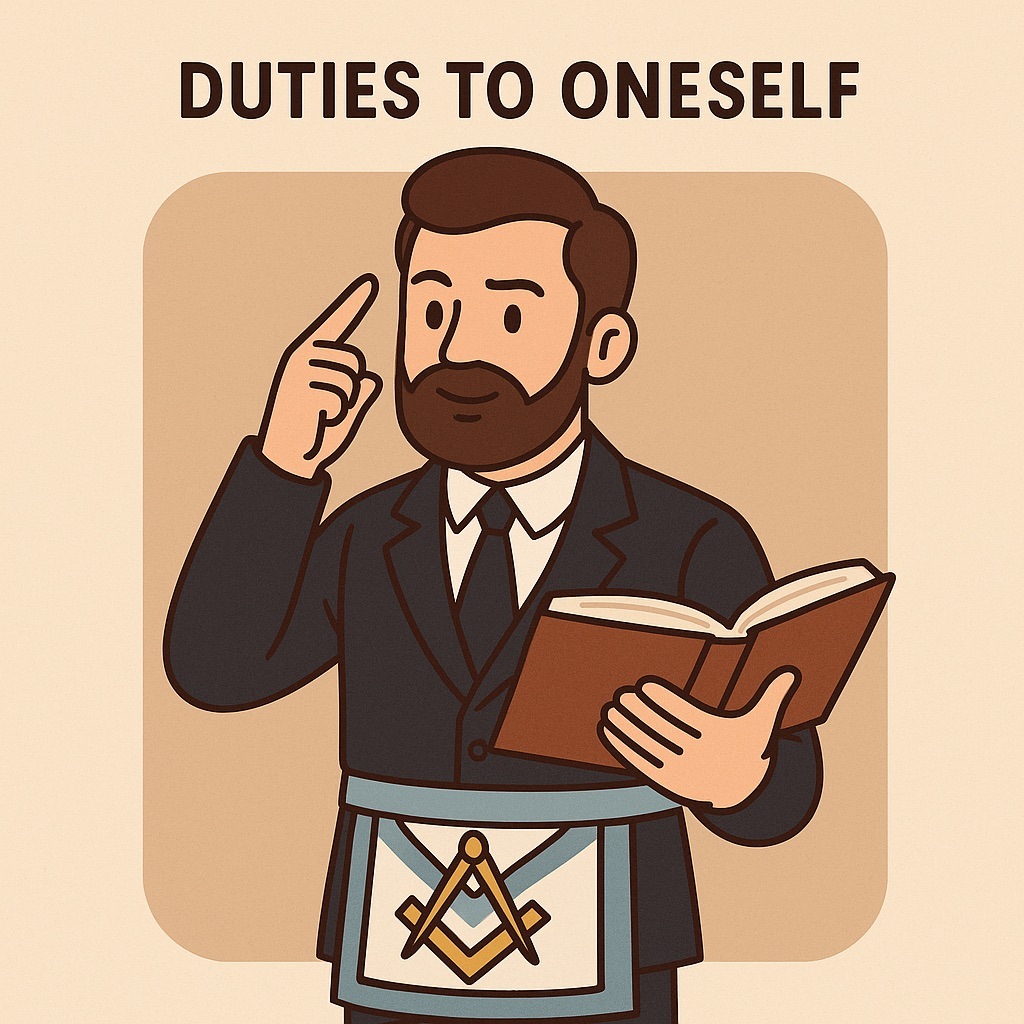
Personal improvement:
Freemasons are expected to continuously cultivate their character, knowledge, and moral excellence. Freemasonry exhorts the pursuit of excellence in all endeavors, including learning, self-knowledge, and virtue, seeing self-improvement as a Mason’s constant duty.
Integrity and honor:
A Mason must maintain strict personal honor, honesty, and virtue in his private life. Each Mason’s conduct is his own responsibility, and he must always strive to choose that course of moral action which brings credit to himself and honor to the fraternity. Living honorably in small matters preserves one’s good name and, by extension, the reputation of Masonry.
24/7 Masonic identity:
A Mason must remember that he is always a Mason, even outside Lodge. Freemasonry reminds members that their behavior in public, at work, at home, or when alone reflects on the Craft. A noted Masonic author urges: “in every moment of our life, in public, at work, at pleasure, with our families, even when you are alone, you are a Mason!” The non-Masons who know us will judge each of us, and Masonry itself, by the way in which we conduct ourselves. Thus, a Mason should govern himself on the level at all times.
Duties to the Fraternity
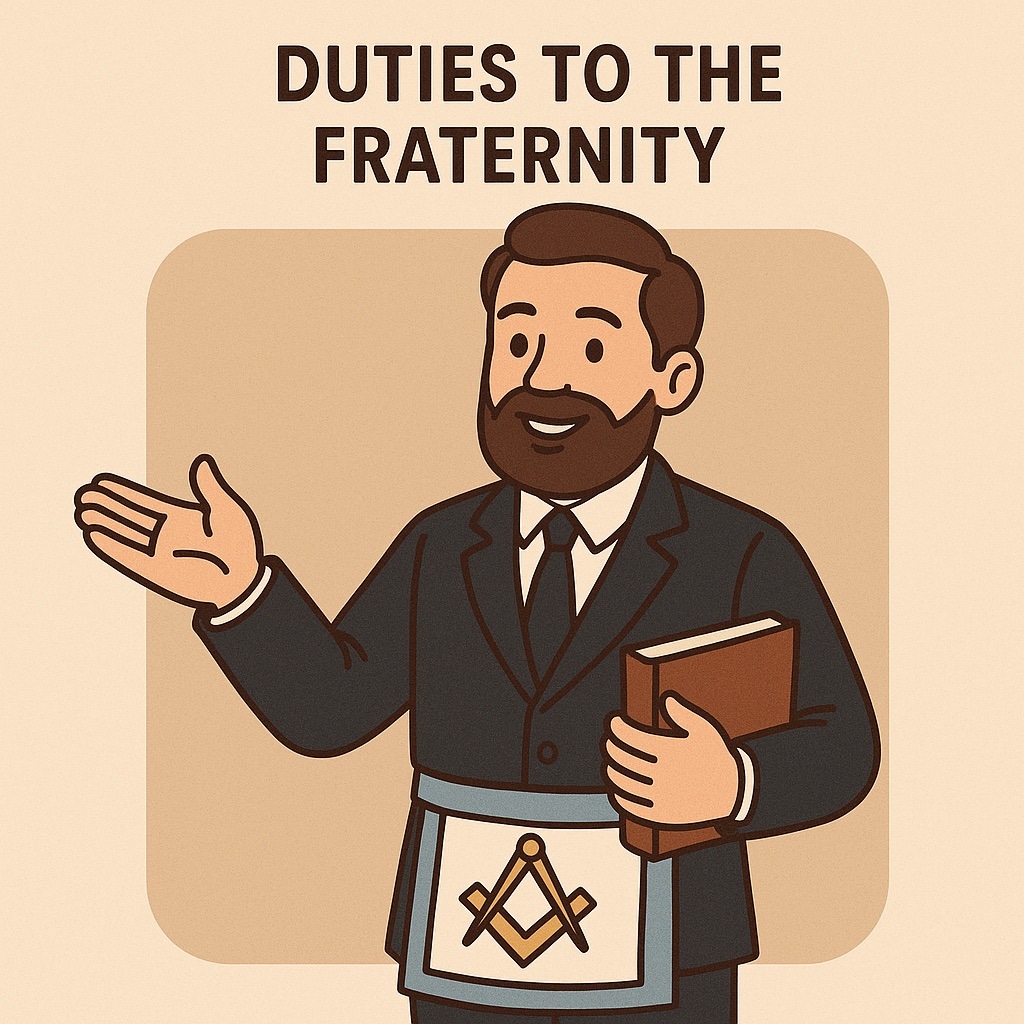
Brotherly support:
A Freemason should show Brotherly Love by helping fellow Masons who struggle or fail, offering a hand without judgment, and providing guidance without harsh criticism. Masons are expected to act as mentors, especially Master Masons, to educate, guide, and mentor Apprentices and Fellow Crafts, exemplifying ethical and moral conduct for their benefit.
Loyalty to the Craft:
Masonry requires fidelity to the fraternity above other interests (after family and civil law) and fidelity to Lodge and Grand Lodge rules. Loyalty to the fraternity and obedience to its laws is a Mason’s fundamental duty. In practice, this means upholding lodge regulations, respecting officers, and meeting other commitments such as voting on candidates, while never using membership for improper advantage.
Uphold Masonic principles:
Freemasonry is founded on Brotherly Love, Relief, and Truth, as well as virtues like tolerance, charity, and mutual help. A Mason should live these ideals and encourage them in others. In short, he should propagate the fraternity’s teachings by acting justly and kindly toward all Brethren, guarding the Craft’s reputation, and never betraying Masonic trust.
Duties to the Lodge
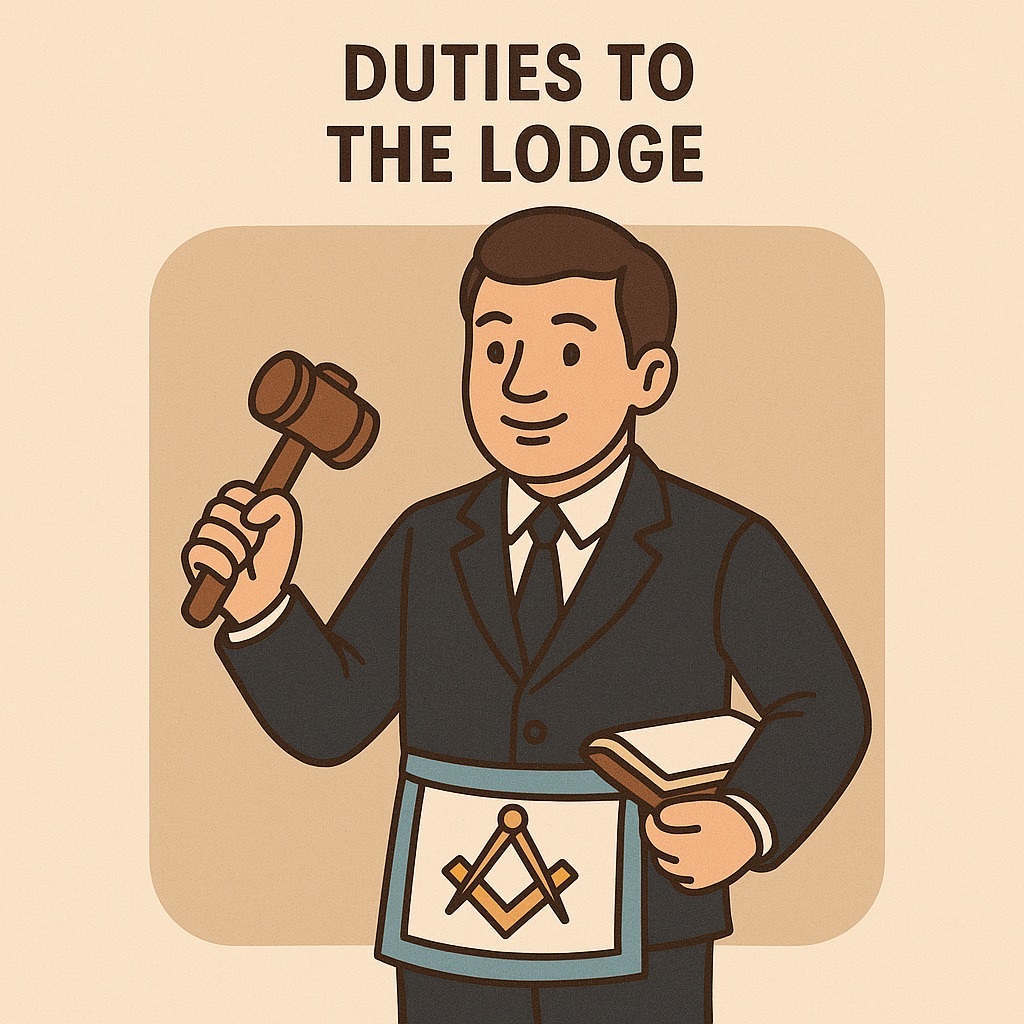
Active participation:
Every Mason has a moral obligation to his lodge: attend stated communications, participate in deliberations and ceremonies, and help carry on lodge business. Whether cast in secret ballot or in public vote, a Mason should take his share in lodge decisions. Even without mandatory attendance rules, active involvement, such as acting as speaker, officer, or committee member, is considered essential for the lodge’s welfare.
Service and leadership:
This includes standing for office when able, teaching degrees or catechisms, acting as mentor within the lodge, and helping organize events or charity drives. The lodge depends on its members’ willingness to share time and talent for ritual work and management. Providing administrative or educational support ensures the lodge remains vibrant.
Order and harmony:
A Mason should observe proper Masonic etiquette: respect the Worshipful Master and officers, follow customs such as dress and ritual format, and keep meetings dignified. The Short Talks literature emphasizes that good order and tradition, not just written law, govern lodge life. In practice, a Mason helps settle disputes amicably, strives to preserve peace, and never causes scandal in lodge affairs.
Duties to Family
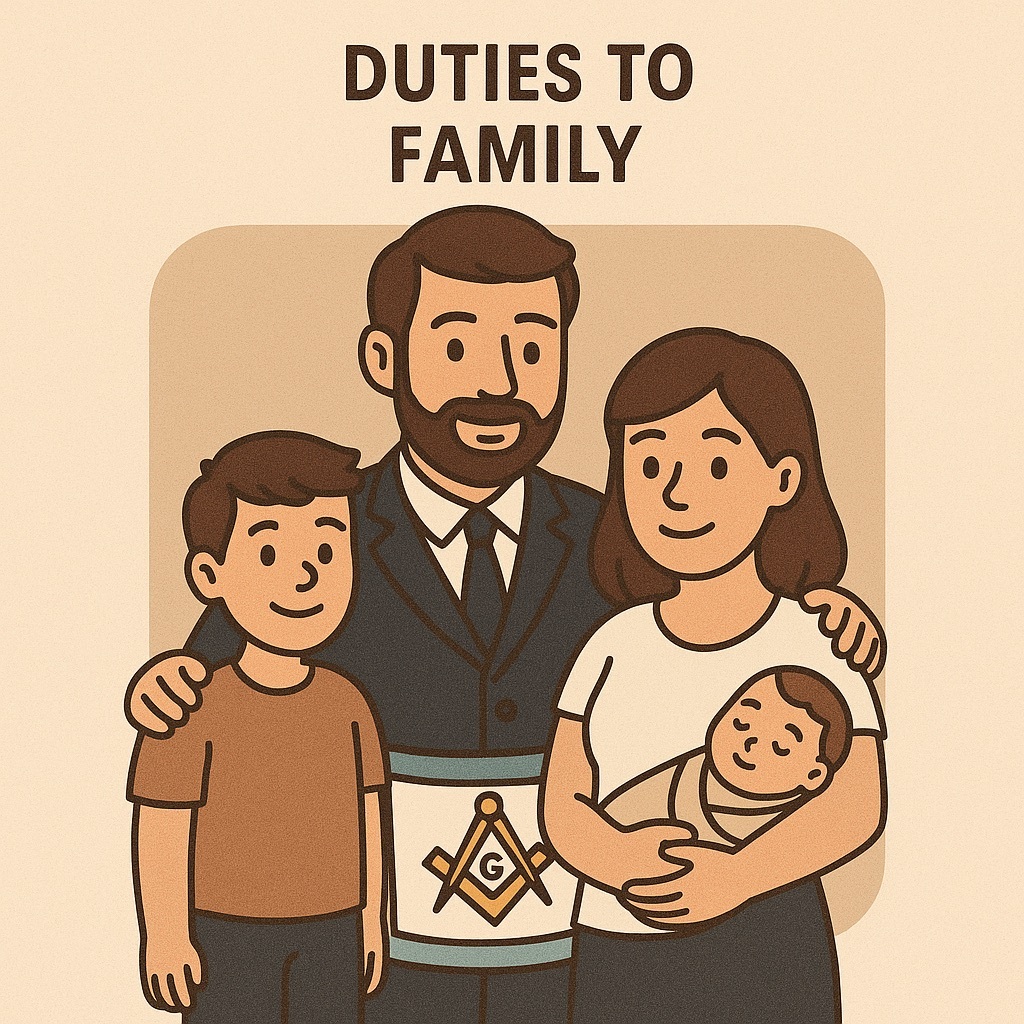
Priority of family:
A Mason’s obligations to spouse, children, and parents must take precedence over Masonic activities. In fact, it is explicitly taught that no duty to the Craft should conflict with duties to the family. Meetings and projects should not cause neglect or hardship at home. When conflicts arise, family responsibilities, and the law, come before lodge or fraternity commitments.
Lead by example at home:
A Mason should show kindness, patience, and integrity to his family members, echoing the teaching of “kindness in the home.” He is expected to provide moral guidance at home, modeling the compassion and honor he learns in lodge. Master Masons should extend the same moral and ethical leadership in their families as they do in the Craft. A Mason’s home should reflect his values: honesty, temperance, charity, and love.
Support and care:
This practical duty means working to support loved ones financially and emotionally. It also includes sharing Masonry in positive ways, such as involving family in lodge events like dinners or picnics, so that loved ones feel respected and included. Masonic literature explicitly states that Masonry recognizes a man’s obligations to family, community, and self, and does not interfere with his ability to meet these obligations. A Mason ensures his home life flourishes even as he serves the Craft.
Duties to Work
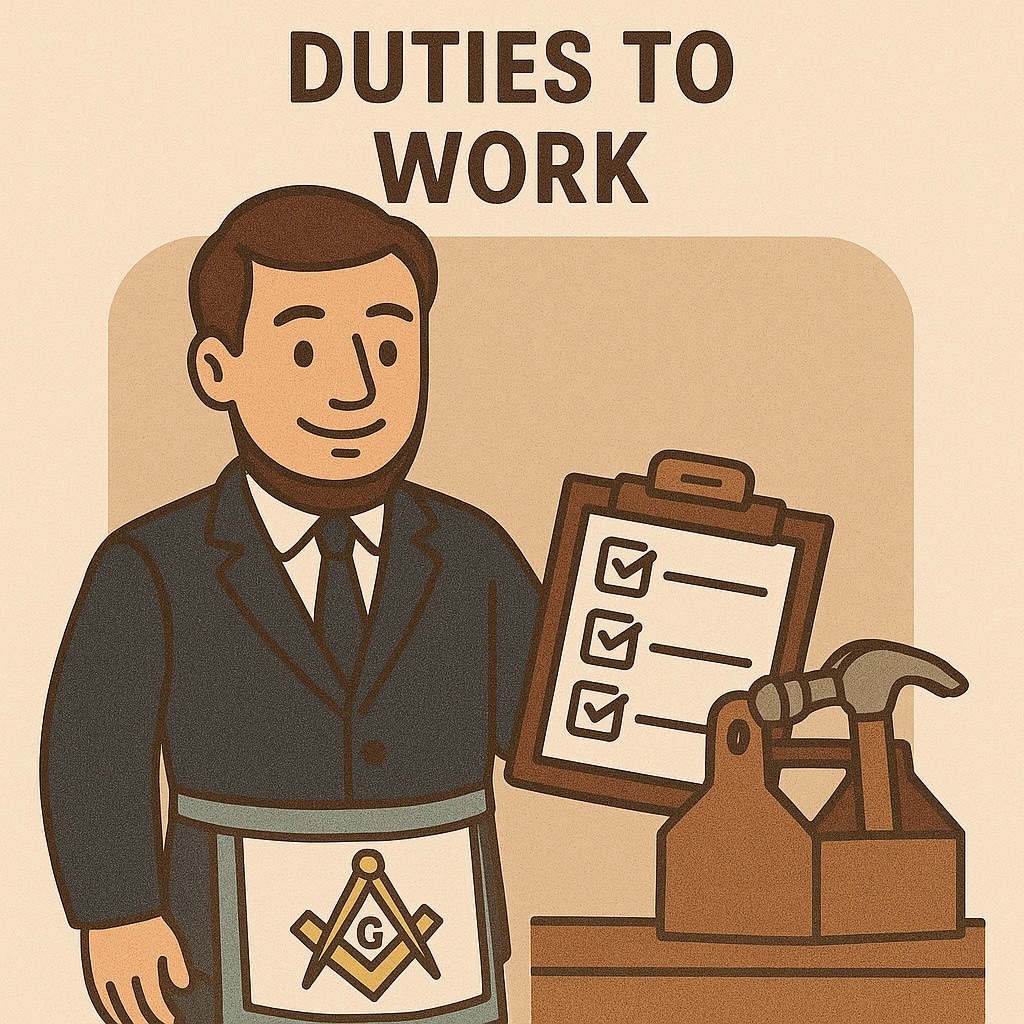
Honesty and fairness:
“Honesty in business” and “fairness in work” are both fundamental principles for a Freemason. He must be truthful with customers, employers, and employees, maintaining clear and fair transactions and agreements. This reflects the symbolic lesson of the Square (uprightness) and Plumb (fairness) in Masonic teaching. Reliable honesty on the job protects one’s own integrity and the fraternity’s good name.
Diligence and competence:
Dependability on the job is a Masonic expectation. Just as an operative mason was accountable to his guild and to his tools, a Speculative Mason should do his best work and continually improve his skills. Completing tasks with care, showing initiative, and being punctual all exemplify Masonry’s teachings of industriousness. The quality of one’s labor should reflect the Craft’s value of truth in all things.
No favoritism:
Masonic law strictly forbids using membership to obtain jobs, contracts, or promotions. Freemasonry emphasizes merit-based dealings: one must not favor fellow Masons at the expense of others. New members explicitly swear they expect no material advantage from Masonry and will not seek preferment through lodge ties. Breach of this duty is considered unmasonic. A Mason treats all business associates equally and refuses any expectation of special favors.
Duties to Community
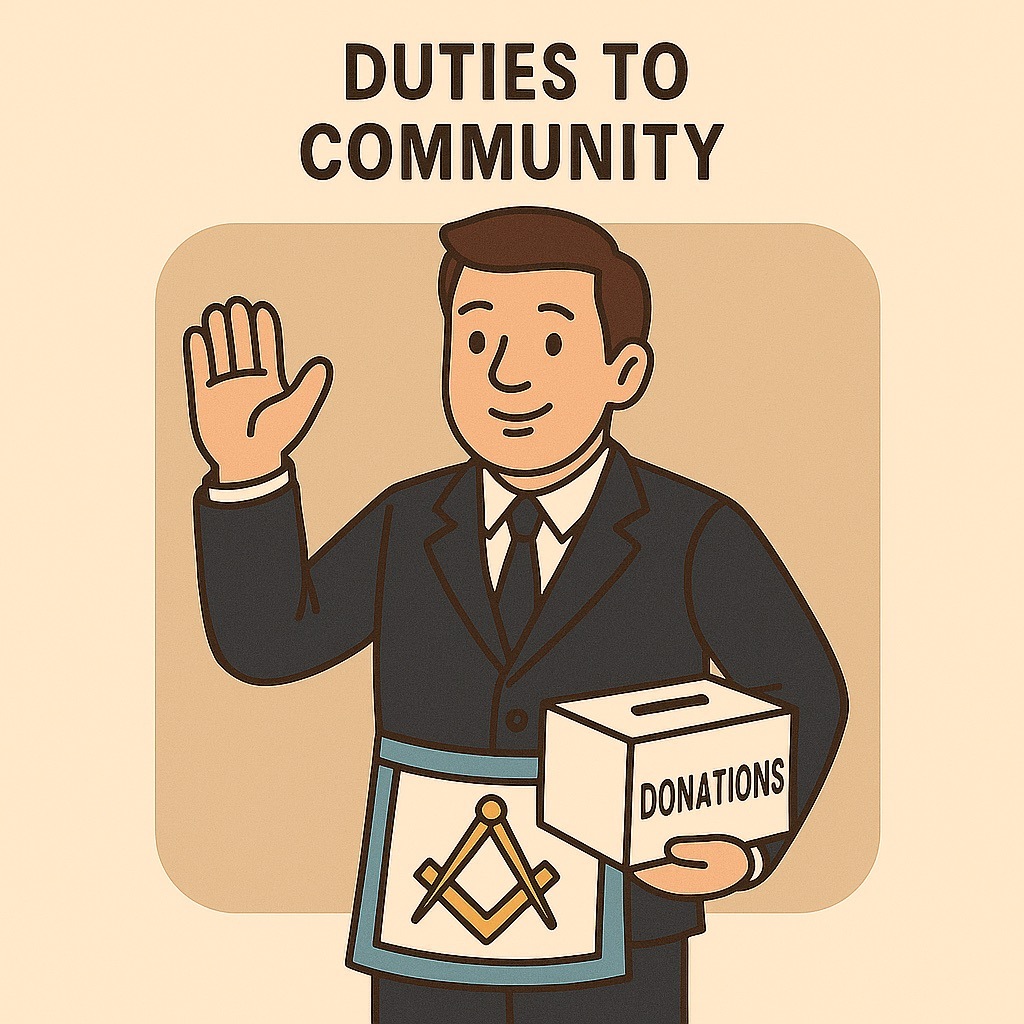
Charitable service (Relief):
Freemasons are taught to practice charity beyond the lodge, caring for the broader community. This means volunteering time, donating to local causes, and offering help where it’s needed, not only to Brethren but to all people, including widows, orphans, the sick, and the underprivileged. Masonry historically supports hospitals, youth programs, and disaster relief, but each Mason is also personally encouraged to contribute to civic charities.
Good citizenship:
Masonry declares that obedience to just laws and cooperation in society are a Mason’s duties. A Mason is expected to be a quiet and peaceable citizen, loyal to the government and law-abiding. In practice, this means paying taxes, voting, serving on juries, and helping maintain the public good. Lodges remind members that a well-ordered society is a key part of Masonry’s goals. A lodge stands for morality and law-abiding citizenship in its community.
Acting justly towards all:
Masons should act with tolerance, courtesy, and kindness toward everyone in the community. This means respecting others’ opinions, being polite and fair in all social interactions, and showing sympathy for the less fortunate. Masonic teaching stresses pity and concern for the unfortunate as a duty. By exemplifying understanding and goodwill, a Mason spreads the Craft’s light in society and helps make the world more harmonious.